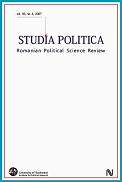Entre droit canon et théologie politique: le consentement chez Guillaume d’Ockham
The Concept of Consent between Canon Law and Political Theology in William of Ockham
Author(s): Miruna-Irina Tătaru-CazabanSubject(s): Christian Theology and Religion
Published by: Editura Universităţii din Bucureşti
Keywords: consent; canon law; political theology; christian community; poverty
Summary/Abstract: Together with Marsilius of Padua, William of Ockham has been of ten times considered as a thinker whose radicalism, present in its works on Logics, did not exempt his political writings. The perspective that we have adopted in this study does not ignore a wider interpretation of his political thinking, in the context of the dispute related to the Franciscan poverty. Nevertheless, as we have shown so far, the Franciscan poverty issue cannot be understood without a brief introduction in the relationship between the canonists and the theologians of the XIIIth and the XIVth centuries. The method that we have pursued starts with the presentation of the theological and canonical arguments on the issue of poverty, up to a study focused on some of Ockham’s texts such as An princeps, the Compendium errorum papae Ioannis XXII, the Breviloquium de principatu tyrannico and the Octo quaestiones de potestate papae. Our approach takes into consideration the fact that Ockham’s perspective on the issue of consent must be placed in the context of the pursuit of ecclesio logical truth. As we have asserted at the beginning of our investigation, one does not find in Ockham a precise source for the ecclesio logical truth. In his perspective, the decretals or even the Councils of the Church, whose decisions are the expressions of general consent, do not represent a guarantee for theological truth. The notion of consent, fundamental for Ockham’s political thinking, echoes deeply into the ecclesiological sphere, for example, with reference to the issue of the wows of the Franciscans and specifically, to the poverty controversy. Because Ockham’s texts have mainly a theological significance, as Arthur P. Monahan justly noticed, the theme of consent is designated most often by the expression of causa fidei which involves the entire Christian community, and specifically those who wish to imitate Christ most perfectly.
Journal: Studia Politica. Romanian Political Science Review
- Issue Year: 7/2007
- Issue No: 4
- Page Range: 951-977
- Page Count: 27
- Language: French

